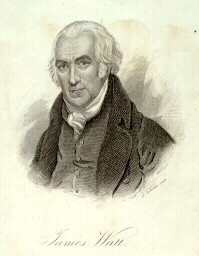Today, a French scientist tries to redirect his country. The University of Houston's College of Engineering presents this series about the machines that make our civilization run, and the people whose ingenuity created them.
It's 1834. A famed scholar rises to address the French Academy of Sciences. He's François Arago. Arago was born on the eve of the French Revolution. He trained at the Ecole Polytechnique -- Napoleon's great think tank. When he was only 23, the Ecole made him a professor of mathematics.
First Arago worked in astronomy -- then in optics and electricity. He helped prove that light moves in waves. He measured the speed of sound in ice. He worked on the polarization of light. His electrical work anticipated Faraday.
But Arago looked beyond science toward its use. His work on electricity found use in telegraph systems. He took part in the study of steam boiler explosions.
In his mid-40s, he went a step further. He took up politics. His verve and charisma won liberal causes, like abolishing slavery in French colonies and improving conditions for sailors.
Now Arago rises to take on another radical cause. The theoretical French have let their industry fall far behind the practical English. The French look at England the way we've started looking at Japan.
Arago's lecture is one the French Academy isn't ready for. It's about England's James Watt. He starts by acknowledging two French thinkers who had the idea of a steam engine. But, he says, it took the English to put flesh and blood on the idea.
The English built the actual engines. The only science that helped them was the science of their own shrewd observations.
And, he adds, those engines have improved the life of the poor. With that he's gone too far. French intellectuals preferred to see English machines as evil. Arago faces an angry outcry.
Soon after, he wrote a second paper to defend himself. He titled it, "On Machinery Considered in Relation to the Prosperity of the Working Classes." It says things most of us take for granted: Machines don't steal jobs, they create them. Machines make goods affordable to the poor. And so on.
By now, of course, the new engines really had become monsters. Four years after Arago's talk, Charles Dickens published Oliver Twist. Dickens woke the English public to the horrors of industrial slums. A new wave of social reform began.
But Arago celebrates the humanitarian impulse that drove people like James Watt in the first place. Watt really had created machines in the interests of the common people -- of whom he was one. And which of us would exchange our common lives today for the lives we lived before Watt -- or before Arago.
I'm John Lienhard, at the University of Houston, where we're interested in the way inventive minds work.
(Theme music)
Hahn, R., Arago, Dominique François Jean. Dictionary of Scientific Biography. Vol. 1 (C.C. Gilespie, ed.) Chas. Scribner's Sons, 1970-1980.
Arago, M., Life of James Watt. 2nd ed., Edinburgh: Adam & Charles Black, 1839. (M. must stand for Monsieur. Arago's initials were D.F.J. This volume also includes Arago's rejoinder, "On Machinery Considered ... ," Lord Jeffrey's Elogium of James Watt from the Encyclopaedia Britannica, and Lord Brougham's "Historical Account of the Composition of Water.")
In 1905, the American visionary Andrew Carnegie also wrote a biography of James Watt. He made several references to Arago's important lecture.

19th century engraving, source unknown.
James Watt